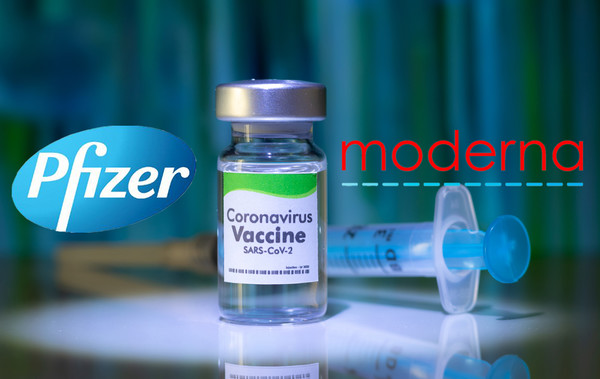A study conducted by the National Health Insurance Service (NHIS) showed that fourth booster doses of Pfizer and Moderna’s Covid-19 vaccines have little or no effect in preventing Covid-19 infections in people aged over 50 and older.

Kim Jai-yong, Director of Big Data Research Division at the NHIS, said in a symposium on Wednesday that the NHIS analyzed the efficacy of vaccination in preventing Covid-19 outbreaks and deaths and concluded that the fourth Covid-19 jab was ineffective in older people. The symposium, co-hosted by the NHIS and the Korea Disease Control and Prevention Agency (KDCA), was on utilizing big data for Covid-19.
In the study, the NHIS verified the efficacy of the Covid-19 vaccine in preventing infection and reducing mortality by using the Korean population as of July 2021 as a baseline to correct for differences in gender and age structure by vaccination tier.
The results showed that in the entire population, all Covid-19 vaccine doses – two primary and two boosters -- prevented outbreaks early in the course of vaccination but lost effectiveness after four to eight months.
The protective effect of the vaccine's first booster (third) shot in the high-risk group of people aged 50 years and older disappeared rapidly with the outbreak of the Omicron variant early last year.
Notably, receiving second booster (fourth) shots did not protect people 50 and older from the Covid-19 virus.
Specifically, the Pfizer vaccine provided 10-15 percent protection against BA-1 and BA-4/5 for about three months after receiving the third dose around January of this year, but this protection disappeared after April.
The relative risk of developing Covid-19 at the fourth dose was similar or higher from the beginning of the program compared to unvaccinated individuals.
For the Moderna vaccine, the third and fourth doses administered in November of last year provided 10 to 30 percent protection against BA-1 and BA-4/5 for the first three months, but the fourth dose was found to have lost this protection after May.
Kim expressed concern about the upcoming fall-winter pandemic as it is unlikely that additional doses of the current Covid-19 vaccines will be potent in preventing outbreaks.
However, the big data analysis showed that the Covid-19 vaccine was effective in preventing Covid-19-related deaths.
Notably, the relative risk of dying within 28 days was 80 to 90 percent lower among those aged 50 and older, who received the vaccine.
“The efficacy of Covid-19 vaccines in preventing death has been consistent since January of last year,” Kim said.
Lee Sang-won, a KDCA official, also said, “Several previous studies have confirmed the efficacy of Covid-19 vaccines in reducing the severity and mortality of infection, and the agency recognizes the need to introduce a new Covid-19 vaccine.”
Regarding the data, Moderna Korea said that data presented at the symposium showed that the relative risk of death from Covid-19 infection among people aged 50 years and older, a high-risk group, is 80-90 percent lower than among unvaccinated people.
"This shows that it is important for older adults who are at high risk of severe illness and death from Covid-19 to get vaccinated to prevent severe illness and death," a company official said. "As the Covid-19 virus evolves and new vaccines are needed, Moderna is actively collaborating to rapidly develop updated vaccines to provide the most effective vaccines to help improve public health and to rapidly deliver vaccines in line with government policies."
In response to the U.S. FDA's Vaccines and Related Biological Products Advisory Committee (VRBPAC) recommendation in June that the formulation of the Covid-19 vaccine for use this fall through next year should be centered on combating XBB variant strain, Moderna completed a license application for a Covid-19 vaccine containing the XBB.1.5 variant and submitted the license application to the European Medicines Agency (EMA) on July 3.
Moderna Korea is in discussions with the KDCA and the Ministry of Food and Drug Safety to ensure a stable supply of updated vaccines that respond to the new variant in Korea and will do its best to cooperate with the government's vaccination plan.
Pfizer was unavailable for immediate comments regarding the results of the study.
Meanwhile, Professor Kim Woo-joo of the Infectious Disease Department at Korea University Guro Hospital, predicted that a Covid-19 outbreak is expected this fall and winter due to variants, declining immunity, and seasonal factors during a symposium hosted by the Seoul Physicians Association in June.
According to Kim, risk factors for a Covid-19 resurgence in late 2023 are low Covid-19 bivalent vaccination rate, the emergence of variants, decreased population immunity, complete elimination of distancing, and the opening of schools at all levels.
As a policy for Covid-19 vaccination in the fall of 2023, Kim suggested simultaneous vaccination with the influenza vaccine around October and improving the vaccination rate.

